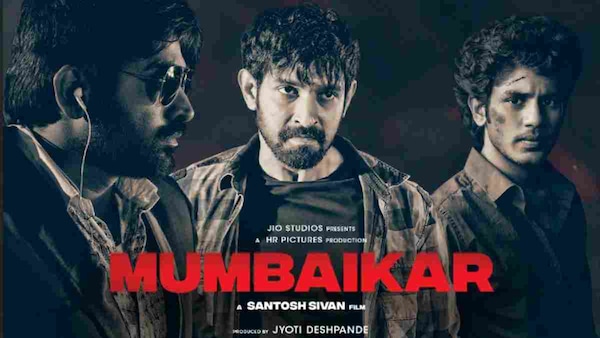Quick Take | Mumbaikar: This Vijay Sethupathi movie is case study for how to kill a blockbuster
Mumbaikar: Santosh Sivan's attempt to infuse his outdated notions of commercial filmmaking has unfortunately resulted in a weakened script.

Last Updated: 04.56 PM, Jun 02, 2023
Mumbaikar, unfortunately, falls short as a filmmaker whose artistic vision seems to be trapped in a repetitive cycle. Filmmaker Santosh Sivan's attempt at remaking the acclaimed Tamil blockbuster Maanagaram, which played a pivotal role in launching Lokesh Kanagaraj's flourishing career, leaves much to be desired. In this endeavour, Sivan disappoints by delivering a film that tarnishes the essence of what made the original such a memorable success.
Maanagaram successfully captured the essence of Chennai city from the perspective of an outsider, highlighting its relentless pace and unstoppable spirit. Santosh Sivan, perhaps thinking it was a straightforward task, embarked on a similar journey by setting the story against the backdrop of Mumbai with Mumbaikar. However, unlike Lokesh Kanagaraj, who skillfully tailored an experience that was deeply rooted in the specific realities of Chennai, Santosh Sivan struggles to fully immerse Mumbaikar in the true essence of the Mumbai experience.
Santosh Sivan should have focused on adapting a story that truly resonates with the vibrant lifestyle and rich culture of Mumbai. However, his attempt seems to be centred around recreating a Chennai experience within the bustling streets of Mumbai. The performances adds to the shame, as characters played by Hridhu Haroon and Vikrant Massey, intended to represent the contrasting facets of the Mumbai experience, unfortunately, fail to fully immerse themselves in their respective roles, leaving the characters feeling underdeveloped and lacking in depth.
Santosh's attempt to infuse his outdated notions of commercial filmmaking has unfortunately resulted in a weakened script. By resorting to caricature-like portrayals, he diminishes the impact of the film's antagonists. For instance, Ranvir Shorey's character, PKP, a feared gangster in Mumbai, is depicted as a loudmouth who indulges in vada pav eating. While such comedic elements may find their place in Golmaal-style films, they feel out of sync and undermine the overall dramatic tone of the movie.
PKP's character was intended to invoke a sense of terror, creating a genuine concern for the safety of helpless outsiders, played by Hridhu Haroon and Sanjay Mishra. However, the character has unfortunately been squandered in a comedic mishap. Vijay Sethupathi steps into the shoes of the character originally portrayed by Munishkanth. It becomes evident that the role is ill-suited for the calibre and stardom of Sethupathi, leaving viewers perplexed as to why he agreed to undertake this miscast role.
One of the most disheartening aspects of this movie lies in its background score. The score lacks the inspiration and elegance that would have enhanced our viewing experience, instead adding to our sense of disappointment and distress.
The decision to release Mumbaikar directly on streaming platforms, rather than opting for a theatrical release, was a wise move by its makers. Taking into account the recent underperformance of even well-made South Indian remakes like Vikram Vedha and Bholaa at the box office, releasing Mumbaikar in cinemas would have potentially added to the challenges faced by Hindi cinema. By choosing the streaming route, the film avoids further straining the already embattled image of Hindi cinema in terms of box office performance.

